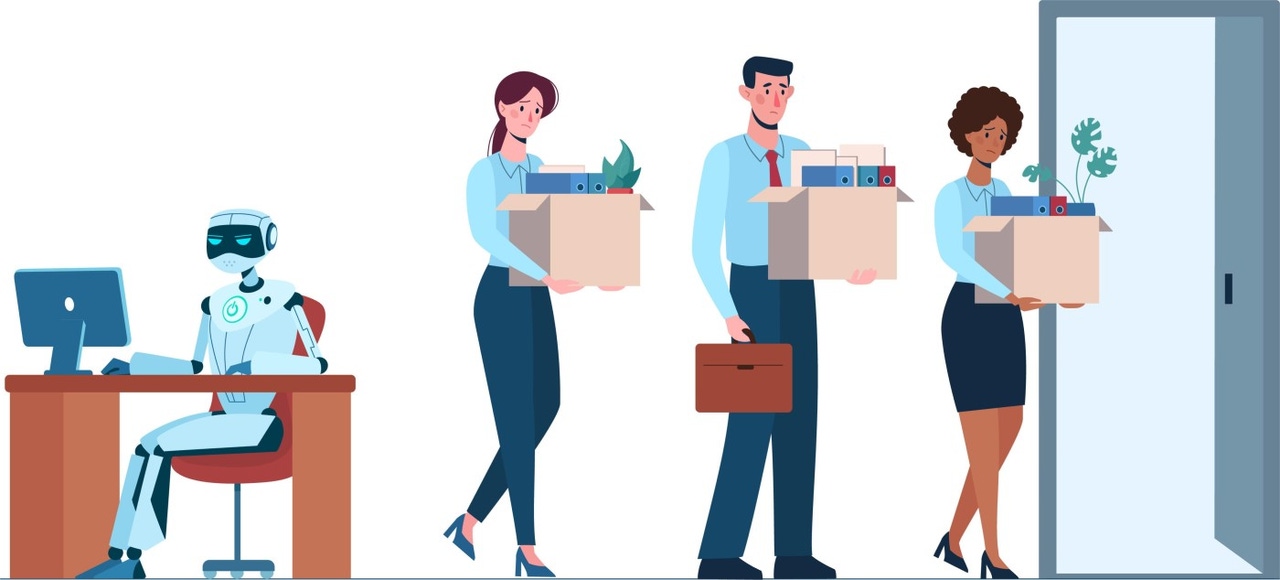Big Tech Usually Dismisses Fears That AI Kills Jobs. Now It’s Studying Them.Big Tech Usually Dismisses Fears That AI Kills Jobs. Now It’s Studying Them.
Microsoft, Google, IBM, Cisco and others will produce a report on how artificial intelligence might change tech jobs.
April 5, 2024

As artificial intelligence continues to envelop the tech industry, debates about how it will affect workers and the economy are ramping up. Big Tech companies that are investing heavily in the technology, including Google and Microsoft, are forming a group to study how artificial intelligence might affect technology jobs.
The group, led by telecommunications equipment maker Cisco, also includes IBM, chip maker Intel, business software company SAP and tech consultant Accenture. Unions including the American Federation of Labor-Congress of Industrial Organizations (AFL-CIO) and the Communications Workers of America (CWA) are listed as “advisors” to the group.
The rise of generative AI, like chatbots and image generators, has shaken the tech industry - with many companies diving headlong into the tech, designing new artificial intelligence tools and causing executives to promise investors that the advancements will revolutionize the world and help them make lots of money. Long-held concerns about AI taking away jobs from humans have grown more urgent as lawmakers debate how to legislate the tech.
Some people who write for a living have already lost their jobs as companies turn to chatbots for advertising or social media copy. Hollywood writers won protections against being forced to work with AI-generated material as part of their new union contract last year. Many computer coders say they use AI to generate code, helping them move faster. A study released in 2023 by the Pew Research Center said around 20 percent of American employees are in jobs with “high exposure” to AI, such as tax preparers, copywriters and web developers.
But overall, it’s unclear how or even if the AI revolution will meaningfully affect work. It’s also uncertain what exactly this new group will do.
Cisco’s announcement about the group said it will focus on producing a report with “actionable insights for business leaders and workers.” It will study how AI might change work for 56 kinds of technology jobs, but the announcement does not detail what those jobs are. Spokespeople for Cisco, Google, Microsoft, CWA and AFL-CIO did not respond to requests for more information on the group.
Corporations often form working groups or write reports on issues facing their industries with the goal of swaying a debate in their favor. Tech companies have been among the biggest spenders on lobbying over the past decade, first as Congress tried to regulate social media and now as lawmakers turn their attention to AI.
Many tech executives have spoken publicly about “reskilling” or “upskilling” workers as the economy changes, essentially providing training for people to learn new skills. But those same companies have often laid off tens of thousands of employees.
During conference panels, interviews and earnings report calls, most AI company executives shrug off concerns about job losses. They argue that though the tech might replace some jobs, it will overwhelmingly make existing workers more efficient by taking away drudge work like reading long documents or sorting through databases. Google and Microsoft are pushing AI into their software tools, like Google Docs or Microsoft Outlook, pitching them as being able to write emails or summarize meeting notes.
About the Author
You May Also Like









